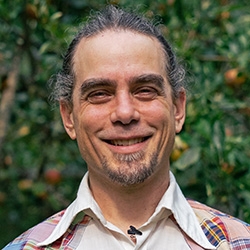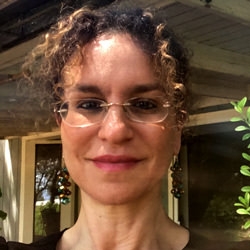
Search Results: socialization
-

Join CNVC Certified Trainers Inbal Kashtan and Roxy Manning, for a passionate and intimate exploration of how NVC can support personal and social transformation in the area of power relations and social divisions.
-
Are you eager to translate your vision of a world where everyone’s needs matter into a tangible reality? Do you long to discover your unique role in responding to the challenges of our times? If, so join Miki for 12 sessions that will propel you on your way!
-
When we have few external resources (money, time, health connections, etc), we can still empower ourselves and one another. We can strengthen our internal resources, inspire people to join our cause, build solidarity, and influence others who have external resources to support us and our causes.
-
Some people in the NVC community consider the words "privilege" and "power" triggering and/or evaluative. From this perspective, how can the concepts of "privilege" and "power" be considered part of the NVC teaching? This writing piece examines the power and privilege debate. It also discusses what the author sees as Marshall Rosenberg and Gandhi's stance on the subject...
-
What do we actually mean by “use of force” and what counts as such? Here's a template that will be unpacked in this article: "Use of force is consistent with nonviolence to the extent that we use the least amount of force possible, with the most love possible, aiming at (re)creating conditions for dialogue; that we make the choice using as much nonreactive discernment as possible, with as much support for the choice as possible, and while mourning not seeing another way to respond to a situation in which vital needs are at stake except to use force". Read on for more.
-
Working for racial justice is a shift in perspective—a shift in understanding and empathy that leads to a change in our actions: to listen instead of talk, to follow instead of lead, to yield rather than dominate. And to accept that I will continue to mess up. Part of working to undo racism is having the humility to know when our own understanding is limited. Read on for more this, and how it relates to meditation -- plus personal and collective liberation.
-
Trainer Tip: NVC-based social change naturally emerges from “a certain kind of spirituality”, a quality of spiritual clarity. Intuitions and impulses arising from spiritual clarity are more likely to support sustainable systems. Read on for how to bring more of this in, and ways to transform your complaint into commitment.
-
If we're to have a better future, our biggest task will be to reexamine what the police are, their place in the system, and more. Police violence exists by systemic design. The myths of where the problems and symptoms lie with the police, capitalism, laws, government, citizens, class and racism --plus the relationship between all these-- is what keeps oppression ongoing on a mass scale. For change to happen, we'll need to find systemic leverage points, and use privilege to benefit those without it. Read on for more.
-
Within the pandemic, limitations of our market economies are more visible. Extreme need is exposed when the economy is collapsing and so many people are without jobs. We can now see how it’s possible to direct resources where they are most needed, solely out of care and interconnection. This is a call to explore a more viable way of living, that centers relationship over transaction.
-
How can we hold love, understanding and compassion -- and still confront people about the harmful impact of their actions, hold them accountable, take action, speak truth and advocate for change... all in a manner fully aligned with our values and vision? Read on for how we can do accountability; what kind of action we take and with what motivation; and what our movements for change can look like from this lens.
-
With more and more news coverage on the increase in climate events around the world, climate change is slowly becoming accepted as an emergency. But how do we stay sane amongst all the chaos and to go one step further how can we take action whilst being grounded and calm?
-
When speaking to decision makers about social change issues it helps to communicate with compassion, clarity, curiosity, calm, and respect while seeking to understand their needs. This way there’s a better chance for more trust and connection that’s crucial for a win-win strategy to come about. This may take several conversations.
-
We only have this decade to make radical changes to avert crossing over into an unlivable Earth. What's essential is a critical mass of people with capacity to respond to many enormous, daunting social-environmental challenges. This means on a wider scale, responding to conflict, fear, hate, injustice and violence with the ability to see our commonality underlying our differences. And to feel part of a larger whole so we can birth natural caring, togetherness, and cooperation.
-
- Explore the complexities of how we can care for all of life using NVC
- See the role that power plays in relation to observations, feelings, needs, and requests
- Learn how to support people from many backgrounds in being able to apply NVC
- Discern how to engage with these vast topics as we learn and share NVC
-
Read how an American Buddhist NVC teacher with Jewish roots reflects on how any dehumanization in the Israel-Hamas conflict can be used to justify all kinds of violence that can escalate for generations. With acknowledgment of the complexities, his desire is for us to bring in respect, dignity and peace -- for both Israelis and Palestinians. He emphasizes compassionate advocacy of all humanity amid the ongoing crisis.
-
One thing that makes empathic understanding difficult yet valuable is that it can be humbling. If I really open myself to hearing and understanding, while trusting my inner strength of self-knowing, I may be changed by what I hear. My core beliefs or understanding might change and grow. This openness could be key to transforming the energy of conflict into new possibilities for greater connection, creativity, and well-being.
-
How does change take place? In this brief segment, Miki explores the three key ingredients that make change possible for individuals as well as for societal change.
-
Unless we change our collective ways on the planet, we will one day exceed the earth’s carrying capacity. We can only address the planet's very real limits of physical resources at the level of social organization. To operate empathically is to adjust our collective social order and patterns so that resources are more widely available and everyone's needs are met no matter what their output, income, power, circumstances, etc. Can we envision a future where the system is infused with this level of empathy, before it's too late?
-
Empathy alone can be unreliable in guiding compassionate action. As seen in historical events, military training, personal anecdotes, and scientific experiments, empathy alone may not prevent people from harming others. A sense of duty or obedience, often instilled through fear of punishment and shame, might inhibit empathic action. The antidote may be to fostering empathy without resorting to control, shame, or punishment.
-
Aya Caspi, a Certified NVC Trainer discusses how the "story" we tell ourselves about human nature impacts our childhood and the roles we are taught to play in society.
















